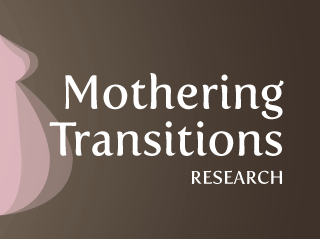Breastfeeding Self-Efficacy
Dr. Dennis developed the Breastfeeding Self-Efficacy Theory and corresponding Breastfeeding Self-Efficacy Scale. Publications from her work have subsequently provided many international research opportunities with individuals from diverse countries such as Argentina, Australia, Brazil, Canada, China, Croatia, England, Finland, France, Germany, Greece, Iceland, India, Iran, Ireland, Italy, Japan, Jordan, Korea, Mexico, Poland, Saudi Arabia, Scotland, Sri Lanka, Spain, Sweden, Taiwan, Thailand, Turkey, the United States, and Vietnam. In total, over 1000 researchers and health professionals from over 30 different countries have requested the use of her Breastfeeding Self-Efficacy Scale. These requests have resulted in several collaborative opportunities related to the translation of the Breastfeeding Self-Efficacy Scale into diverse languages (e.g., Mandarin, Spanish, Polish, Greek, Italian, Portuguese, Japanese, Thai, and Turkish) and the psychometric testing of the scale with different maternal populations (e.g., Australian, UK, African-American, adolescent, and mothers of pre-term infants).
Development of the Breastfeeding Self-Efficacy Theory
To promote the conceptual development of breastfeeding confidence and to guide effective supportive interventions, Dr. Dennis incorporated Bandura’s (1977) Social Cognitive Theory and developed the breastfeeding self-efficacy concept and theoretical model [published: Journal of Human Lactation]. Breastfeeding self-efficacy refers to a mother’s confidence in her ability to breastfeed her infant and it predicts: (1) whether a mother chooses to breastfeed or not; (2) how much effort she will expend; (3) whether she will have self-enhancing or self-defeating thought patterns; and (4) how she will emotionally respond to breastfeeding difficulties. Breastfeeding self-efficacy is influenced by four main sources of information: (1) performance accomplishments (e.g., past breastfeeding experiences); (2) vicarious experiences (e.g., watching other women breastfeed); (3) verbal persuasion (e.g., encouragement from influential others such as friends, family, and lactation consultants); and (4) physiological responses (e.g., fatigue, stress, anxiety). It is hypothesized that health professionals may enhance a mother’s breastfeeding confidence by altering these sources of self-efficacy information.

Development and Psychometric Testing of the Breastfeeding Self-Efficacy Scale
Bandura (1977) advocated a behaviour-specific approach to the study of self-efficacy, arguing that a measure of general self-efficacy in overall ability would be inadequate for tapping an individual’s efficacy in managing tasks associated with a specific behaviour. Thus, to measure breastfeeding self-efficacy an instrument specific to tasks associated with breastfeeding should be used. A comprehensive literature review found no direct application of self-efficacy theory to the measurement of breastfeeding confidence. As such, using her breastfeeding self-efficacy theory as a conceptual framework, Dr. Dennis developed the Breastfeeding Self-Efficacy Scale (BSES) (available upon request). Content validity was judged by a panel of experts and through qualitative interviews Dr. Dennis completed with experienced breastfeeding mothers. Following a pilot test, the revised BSES was assessed with 130 in-hospital breastfeeding mothers for reliability and validity, including internal consistency, principal components factor analysis, comparison of contrasted groups, and correlations with measures of similar constructs. Importantly, support for predictive validity was demonstrated through positive correlations between BSES scores and infant feeding patterns at 6 weeks postpartum. The final product was the BSES, a 33-item self-report instrument where all items are preceded by the phrase “I can always” and anchored with a 5-point Likert-type scale where 1 indicates “not at all confident’ and 5 indicates ‘always confident”. As recommended by Bandura (1977) all items are presented positively, and scores are summed to produce a range from 33 to 165, with higher scores indicating higher levels of breastfeeding self-efficacy.
